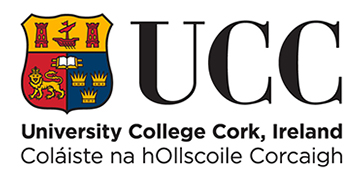30 May 2020
By Elaine Murphy
elaine@TheCork.ie
University College Cork’s School of Public Health to Undertake Key Survey to Determine Impact of Covid-19 on People’s Wellbeing
Estimating the impact of public health measures on physical, psychological and social wellbeing: UCC in collaboration with Ipsos
The College of Medicine and Health, UCC stated that Professor Ivan Perry, Head of the School of Public Health, UCC has been awarded Health Research Board funding in order to estimate the impact of Covid-19 public health measures on physical, mental and social wellbeing.
The research is led by the School of Public Health in UCC and the National Suicide Research Foundation, in collaboration with Ipsos MRBI, the School of Applied Psychology, the School of Applied Social Studies, and the Department of Applied Mathematics, UCC.
A team of multi-disciplinary researchers from UCC in collaboration with Ipsos MRBI, the independent research and opinion polling company, will conduct a national telephone survey to examine individuals’ compliance with public health measures and the impact these measures have on physical, psychological and social wellbeing.
The survey will be conducted in three phases over the months of May, July and September. This will allow researchers to examine the effects of the set public health measures on individuals’ physical, psychological and social wellbeing throughout the different phases. Important topics such as knowledge and compliance to Covid-19 measures, depressive mood and anxiety symptoms, alcohol consumption, stressful and traumatic experiences will be covered by the survey.
Findings from this survey will have a long-lasting benefits as they will inform the creation of a mathematical model that will inform decision on the best levels and duration of physical-distancing measures, balancing a range of factors including capacity of the health service with the effects on individuals’ wellbeing and economic disruption.
The School of Public Health who are contributing to the work on tackling Covid-19, including those who are now on full time secondment as Public Health Physicians to the HSE Public Health Medicine Department, working with colleagues from other School in COMH on contact tracing, including those training contact tracers, those who have set up and are maintaining a nationally accessible online resource to support contact tracing.
A special mention also goes to those providing administrative support for the contact tracing training programme and call centre, those working with Occupational Health in Cork University Hospital to support contact tracing within the Hospital, other colleagues are providing infection control advice to the contact tracing call centre and the wider university. School of public health staff are working at local and national level on the dissemination of emerging evidence on the control of Covid-19 and evidence on the assessment and treatment of patients presenting with suspected and confirmed infection.
Prof Ivan Perry’s role as coordinator of the UCC Contact Tracing Centre sees him working with Kathryn Neville, COMH Manager and Prof Eileen Savage, School of Nursing & Midwifery.
Prof Ivan Perry, Head of the School of Public Health, UCC commented:
‘’this survey is of tremendous importance, it will allow us to assess the impact of Covid-19 public health measures on physical, mental and social wellbeing of people All over Ireland and I would strongly urge people to partake in this short survey. The national telephone survey will enable us to examine individuals’ compliance with public health measures and the impact these measures have on physical, psychological and social wellbeing, vital topics such as knowledge and compliance to Covid-19 measures, depressive mood and anxiety symptoms, alcohol consumption, stressful and traumatic experiences will be covered by the survey’’
Prof Arensman, School of Public health, states
‘’From a public mental health perspective, this study provides a unique opportunity to assess the impacts of Covid-19 and associated movement restriction measures, such as quarantine, isolation, and restricted access to services, on people’s mental health and social wellbeing’’.



